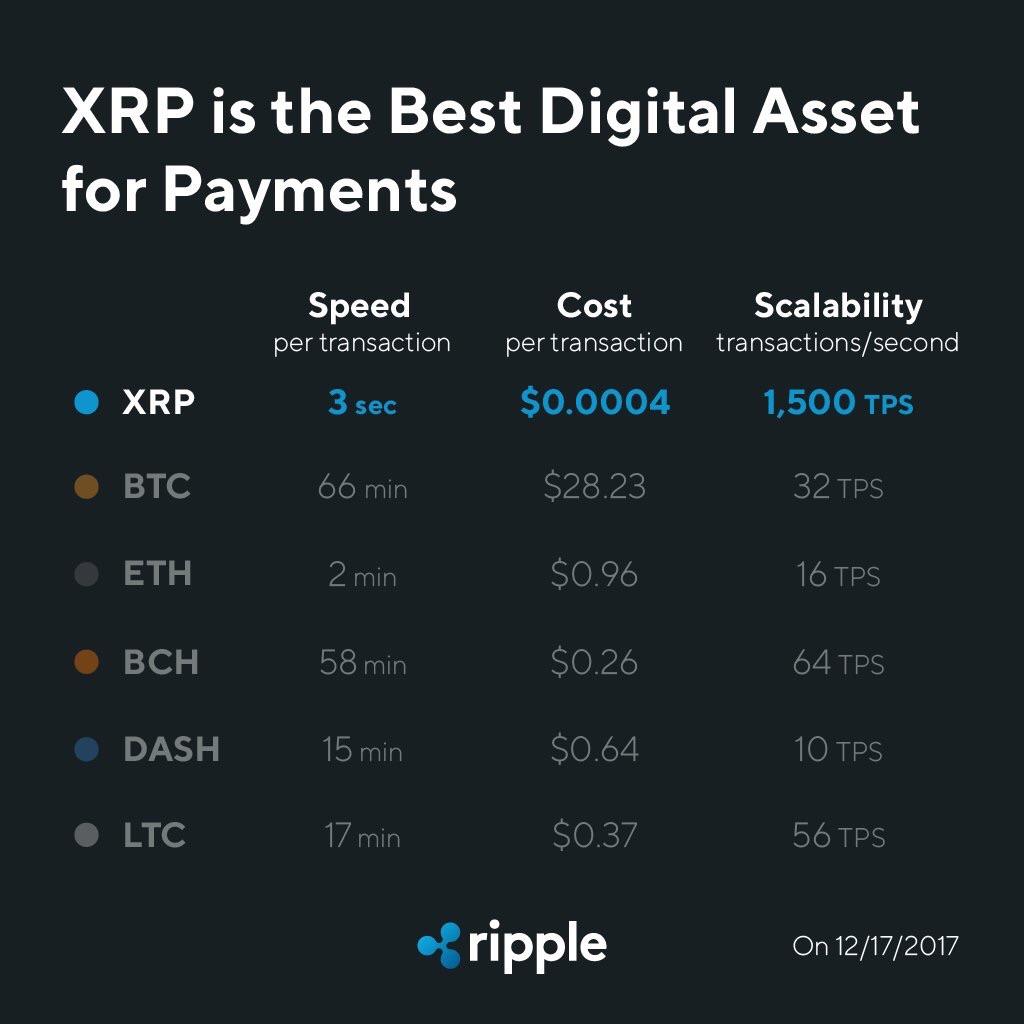What Is XRP And How Does It Differ From Bitcoin?

Table of Contents
Main Points:
2.1 What is XRP?
XRP's Role in the Ripple Network
XRP serves as a bridge currency within RippleNet, a global payment network designed to facilitate fast and low-cost international transactions. It acts as a liquidity solution, enabling seamless conversions between different currencies, thereby reducing transaction times and costs significantly.
- Cross-border payments: XRP streamlines cross-border payments by eliminating the need for intermediary banks, significantly accelerating transfer speeds.
- Liquidity solutions: XRP provides liquidity for financial institutions, allowing them to efficiently manage their global cash flows.
- Decentralized nature: While associated with Ripple Labs, the XRP Ledger operates on a decentralized network, although the degree of decentralization is a subject of ongoing discussion.
XRP's Technology and Consensus Mechanism
The XRP Ledger utilizes a unique consensus mechanism called the Ripple Protocol Consensus Algorithm (RPCA), a federated consensus system differing significantly from Bitcoin's Proof-of-Work (PoW).
- RPCA: This mechanism achieves consensus faster and consumes far less energy than PoW. It relies on a network of trusted validators to verify transactions.
- Proof-of-Work: Bitcoin's PoW involves complex computational processes to validate transactions, resulting in high energy consumption but strong security.
- Advantages of RPCA: High transaction speed, low energy consumption.
- Disadvantages of RPCA: Concerns about the level of decentralization compared to PoW.
XRP's Supply and Distribution
Unlike Bitcoin, XRP has a pre-mined total supply of 100 billion coins. This fixed supply contrasts with Bitcoin's gradually increasing supply, which is capped at 21 million coins.
- Total supply: XRP's fixed supply aims to control inflation and maintain price stability.
- Pre-mined: The initial issuance and distribution of XRP have been a subject of discussion concerning its centralization.
- Market capitalization: The pre-mined nature of XRP influences its market capitalization and overall value proposition.
2.2 What is Bitcoin?
Bitcoin's Decentralized Nature and Blockchain Technology
Bitcoin is often hailed as the pioneer of decentralized digital currencies. It relies on blockchain technology, a distributed ledger that records all transactions securely and transparently.
- Security: Bitcoin's blockchain's cryptographic security makes it extremely resistant to tampering.
- Transparency: All transactions are publicly verifiable on the blockchain.
- Immutability: Once a transaction is recorded on the blockchain, it cannot be altered or reversed.
- Proof-of-Work: Bitcoin utilizes a Proof-of-Work consensus mechanism, requiring significant computational power for transaction validation.
Bitcoin as a Store of Value
Many view Bitcoin as a "digital gold," a store of value that can potentially hedge against inflation. Its limited supply and growing adoption contribute to its appeal as an alternative investment asset.
- Store of value: Bitcoin's scarcity and increasing demand have driven its price appreciation.
- Inflation hedge: Some believe Bitcoin's fixed supply protects it from the effects of inflation.
- Digital gold: The comparison highlights Bitcoin's potential as a long-term investment.
Bitcoin's Mining and Transaction Processing
Bitcoin mining involves solving complex cryptographic puzzles to validate transactions and add new blocks to the blockchain. This process consumes significant energy.
- Bitcoin mining: The mining process secures the network and rewards miners with newly created Bitcoins.
- Energy consumption: Bitcoin's Proof-of-Work mechanism is energy-intensive, a significant environmental concern.
- Transaction fees: Bitcoin transaction fees vary depending on network congestion.
2.3 Key Differences Between XRP and Bitcoin
Transaction Speed and Fees
XRP boasts significantly faster transaction speeds and lower fees compared to Bitcoin. This makes XRP more suitable for frequent, high-volume transactions.
- Transaction speed: XRP transactions are processed within seconds, while Bitcoin transactions can take minutes or even hours.
- Transaction fees: XRP's transaction fees are typically much lower than Bitcoin's.
- Cross-border payments: XRP's speed and low fees are particularly advantageous for cross-border payments.
Decentralization and Governance
While both aim for decentralization, the degree and mechanisms differ. Bitcoin relies on a community-driven governance model, while XRP's relationship with Ripple Labs raises questions about its level of decentralization.
- Decentralization: Bitcoin is considered more decentralized due to its lack of a central authority.
- Governance: Bitcoin's governance is decentralized, while XRP's governance is partially centralized through Ripple Labs' influence.
Use Cases and Target Markets
XRP primarily targets financial institutions and businesses for payment solutions and liquidity management, while Bitcoin's use cases are broader, encompassing payments, investment, and as a store of value.
- Use cases: XRP focuses on payment efficiency, while Bitcoin's use is more diversified.
- Payment solutions: XRP is designed for fast, low-cost international transactions.
- Store of value: Bitcoin is primarily used as a store of value and a medium of exchange.
- Investment: Both can be viewed as investment assets, but their use cases significantly differ.
Conclusion: XRP vs. Bitcoin - Choosing the Right Cryptocurrency
XRP and Bitcoin represent distinct approaches to cryptocurrency technology and functionality. XRP prioritizes speed and efficiency for payment solutions, while Bitcoin focuses on decentralization and its role as a store of value. Understanding their unique strengths and weaknesses is crucial. Both have their advantages and disadvantages regarding decentralization, transaction speed, energy consumption, and use cases. It’s vital to conduct thorough research before investing in any cryptocurrency. Learn more about XRP and Bitcoin; explore the differences between XRP and Bitcoin to make informed decisions. Invest in cryptocurrencies wisely!

Featured Posts
-
 Finom Es Egeszseges Fedezze Fel A Mecsek Baromfi Kft Kme Vedjegyes Baromfihusokat
May 02, 2025
Finom Es Egeszseges Fedezze Fel A Mecsek Baromfi Kft Kme Vedjegyes Baromfihusokat
May 02, 2025 -
 Razvitie Ekonomicheskogo Sotrudnichestva Mezhdu Rossiey I Chekhiey
May 02, 2025
Razvitie Ekonomicheskogo Sotrudnichestva Mezhdu Rossiey I Chekhiey
May 02, 2025 -
 By The Numbers A Tulsa Winter Weather Debrief
May 02, 2025
By The Numbers A Tulsa Winter Weather Debrief
May 02, 2025 -
 Building Trust The Reliability Of A Robust Poll Data System
May 02, 2025
Building Trust The Reliability Of A Robust Poll Data System
May 02, 2025 -
 Doctor Who Actor Backlash Proves The Shows Relevance
May 02, 2025
Doctor Who Actor Backlash Proves The Shows Relevance
May 02, 2025
